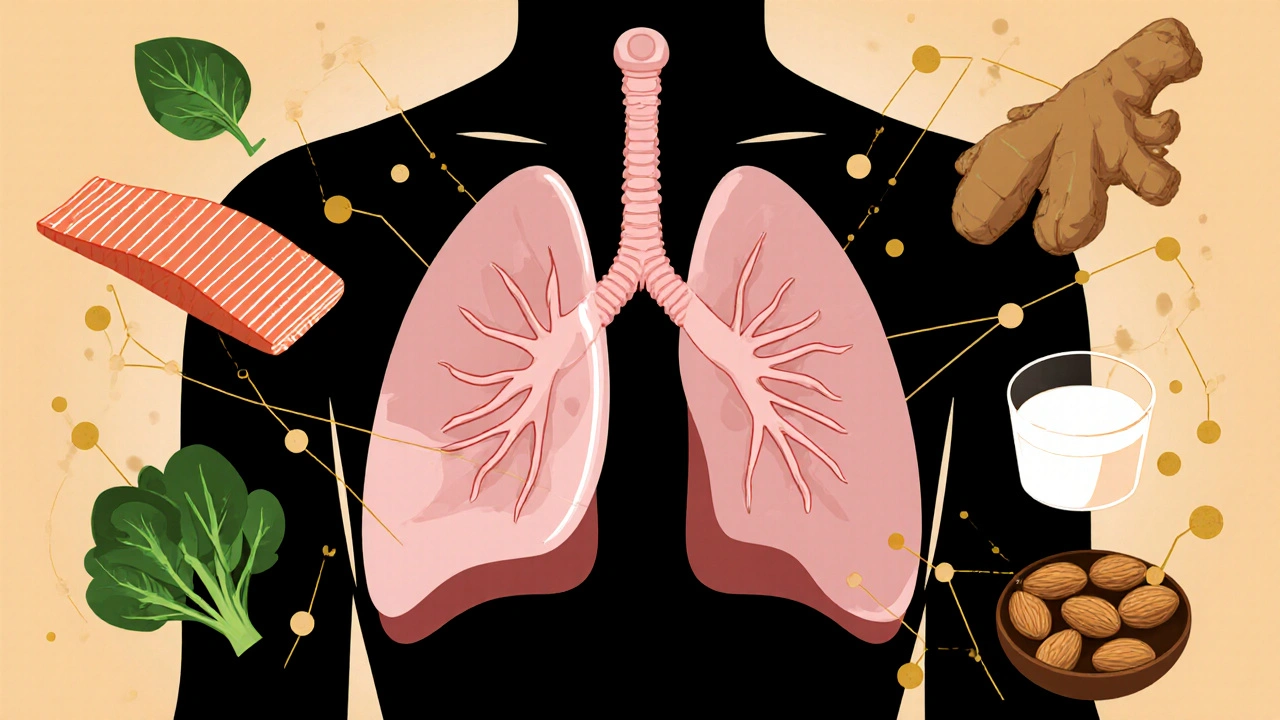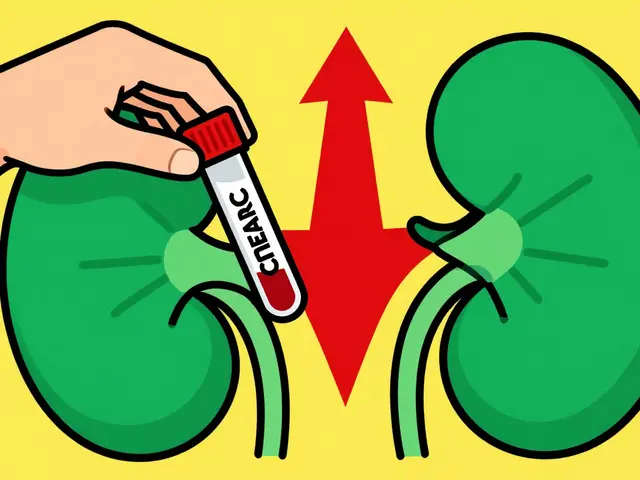Diet for IPF: What to Eat and Avoid to Support Lung Health
When you're living with idiopathic pulmonary fibrosis, a progressive lung disease that causes scarring and makes breathing harder over time. Also known as IPF, it doesn't have a cure—but what you eat can make a real difference in how you feel day to day. Unlike other conditions where diet directly fixes the problem, IPF is about managing symptoms, reducing inflammation, and giving your body the energy it needs to keep going. Your lungs are working harder just to get oxygen, so every meal should help, not hurt.
Your body needs more calories than you might think, because breathing takes up to 10 times more energy for someone with IPF than for a healthy person. That’s why protein-rich foods like eggs, lean chicken, fish, and beans aren’t optional—they’re essential to keep your breathing muscles strong. At the same time, too much salt can cause fluid retention, making your lungs feel even heavier. Sodium isn’t the villain everywhere, but in IPF, it’s one of the first things to cut back on. You’ll also want to watch out for processed foods full of hidden sugars and trans fats—they fuel inflammation, which speeds up lung damage. Instead, focus on whole foods: colorful vegetables, healthy fats like olive oil and avocado, and omega-3s from salmon or flaxseeds. These don’t reverse scarring, but they help slow it down.
Many people with IPF also deal with acid reflux, which can make coughing worse and even cause aspiration—when stomach contents creep into the lungs. That’s why eating smaller meals, avoiding spicy or fatty foods late at night, and staying upright for at least two hours after eating matters. Some find that cutting out caffeine, chocolate, and citrus helps. And hydration? Crucial. Thick mucus is a common problem, and water keeps it thin so you can clear it easier. But don’t overdo fluids if you’re on oxygen or have heart issues—talk to your doctor about the right balance.
You’ll find posts here that connect diet to real-life outcomes: how certain nutrients affect lung function, why some supplements like CoQ10 show up in IPF conversations, and how medications interact with what’s on your plate. There’s no magic food, but there are smart choices. This collection gives you the facts—not guesses—about what works for people actually living with IPF. You’ll learn what to put on your plate, what to skip, and how to make meals work for your body, not against it.






